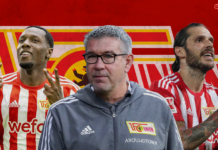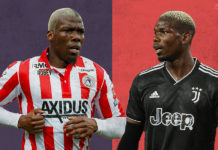South African mining tycoon Tokyo Sexwale announced his candidacy to be the next president of FIFA and declared that “football is not broken … it is heartbroken”.

While much of the former apartheid-era political prisoner’s 11-point manifesto seems predictable, he is the only one of the five eligible candidates running in FIFA’s February election who has pledged to tackle what he terms the “crass exploitation” and “abhorrent child trafficking practices” that are rife within world football. In a rallying cry to protect the “future stars of the game”, Sexwale has vowed that “zero tolerance” will be shown to those who have violated the rights, hopes and dreams of youth footballers across the world.
His plans to tackle what has been called football’s “slave trade” are commendable, but a number of questions remain on how to achieve this.
Since the turn of the millennium, a chain of headline reports by media networks, human rights activists, and academics have painted a bleak picture of football’s exploitative underbelly. They have documented rogue agents extorting cash payments for European odysseys that never transpire and crooked coaches enticing talented young recruits out of school. “Illegal” academies have also been uncovered that are converting raw adolescent talent into richly valuable capital assets. The trafficking of teens abandoned on route to foreign countries, with others left homeless at the endpoint of their journey also has been exposed. Former Watford footballer Al Bangura has spoken of how he was brought to the UK from Sierra Leone as a child with the hope of a football contract but which turned out to be a trick to force him into male prostitution.

Culture Foot Solidaire, an NGO in Paris which seeks to raise awareness of the issue, estimated in 2007 that there were over 7,000 young Africans living in France alone after failing to get signed by a club, while an undercover report by Sky Sports News in 2012 concluded that more than 20,000 youth footballers have been trafficked into Europe in recent decades.
The law needs more teeth
Yet, despite such forceful criticism, there remains a lack of legal precedent for the successful prosecution of trafficking violations in football, and those legal challenges that have emerged have fallen flat.
Particularly insightful was the complex legal case brought by Belgian senator, Jean-Marie Dedecker in 2001. His extensive investigations into the exploitation of Nigerian youth footballers in Belgium failed to yield a single prosecution under the UN Protocol to Prevent, Suppress and Punish Trafficking in Persons.
Should Sexwale be successful in the race for the FIFA presidency, any attempt to make good on his promise must begin with the establishment of an international working group on the subject. This could be tasked with fostering dialogue and co-operation between law enforcement agencies, national governing bodies, clubs, agents and Fifpro, the professional players’ union.
Deregulation is not helping
The global landscape of the game has changed irrevocably in the past two decades, as money and the media have fuelled the growth of highly lucrative football economies across Western Europe. Clubs morphed into transnational corporations, agents emerged as the game’s influential gatekeepers, and academies mushroomed as the search for talent – scratch that, cheaper talent – rapidly expanded across South America, West Africa and beyond.
Never has it been more urgent, then, for FIFA to safeguard the welfare of youth footballers through robust governance and the redistribution of its revenue streams towards the global monitoring of its regulations on the status and transferal of players. Yet the reality couldn’t be further removed, with FIFA’s passive and weak leadership encapsulated by its decision to deregulate the agent industry in April 2015. At the same time, the Player Status Committee, which monitors the status and transfers of players, has largely failed to stem the routine infringements that have gone without prosecution at all levels of the game.
Turning the tide of football’s deregulation will demand a systemic shift in FIFA’s priorities. A judicious starting point for the next president might be the redeployment of a greater portion of football’s astronomic wealth towards the fight to safeguard its future integrity.
Migrants with dreams of football stardom
Images of haphazardly-built boats packed with human cargo, perilous sea journeys over the Mediterranean, and young men ensnared at the summit of Europe’s razorwire fences have become emblematic of a contemporary “migrant crisis”. Football, and its exploitative forms of entrepreneurial opportunism, are also linked to this broader crisis.

In fact, in the context of West Africa, the powerful allure of football as a vehicle of migration can only be understood against the dire predicament of a young people who find themselves unable to procure the basic means to work, wage and wedlock, and willing to risk life and limb in the search for more prosperous futures.
Education programmes and awareness campaigns on the risks of football migration might well be a fruitful starting point for FIFA’s next president. Still, the creation and execution of a long-term strategic blueprint to tackle the issue of child trafficking hinges not just on the ethical reform of FIFA, but on the need to recover some modicum of social justice and accountability in a football industry now dominated by a wealthy elite at the top of the game.



